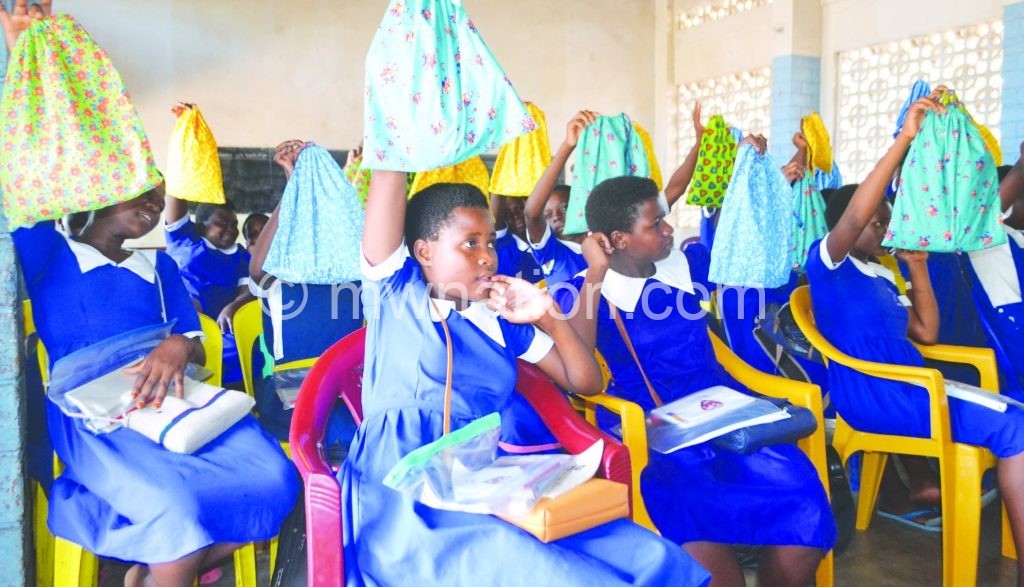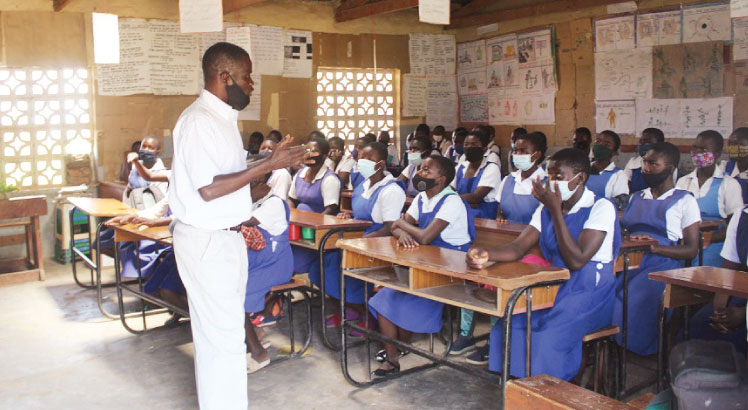Sorting school woes wholesale
Fargrace Mikwamba, chairperson for the mother group, will tell you how thorny matters of menstruation were at Lirangwe Primary School in Blantyre Rural. So did the school’s deputy head teacher Masautso Mbewe.
Most of the girls, when they are in their menses, they choose to stay home from school for fear of soiling themselves.

“Primarily, most of them do so because they cannot afford sanitary pads. Nearly every week, we could get reports of girls not going to school because they were having their periods,” says Mikwamba.
Mbewe, deputy head for the school which has 1 695 boys and 1 798 girls, says this leads to high drop-outs among girls.
“This has been a major problem, especially among girls in the upper classes. Menstruation should not be the cause of girls’ absenteeism. Sadly, that has been the case in our school,” observes Mbewe.
It was, therefore, a day of joy when Days for Girls, an organisation that distributes re-usable, washable and user-friendly sanitary pads for girls in schools teamed up with Classrooms for Malawi to ease life for learners at the school. Not only were sanitary pads provided to the girls, but all the learners got an education pack containing a notebook, ruler, eraser and pencil sharpener.
For Mbewe, the education and sanitary material would improve the learners’ education. Particularly, he said Classrooms for Malawi was the school’s friend, having previously donated Covid-19 preventive materials such as buckets, soap and basin, and also constructed a school block and renovated three classrooms.
On the other hand, a member of the school management committee Vincent Yuda, the lessons on menstrual hygiene the girls got after the boys were told to go out, were helpful. Days for Girls coordinator Mable Ngoleka and school health and nutrition coordinator for Blantyre Rural Lucy Nkhata conducted the lessons.
Yuda pointed out: “Most parents do not sit down with their daughters to talk about issues such as menstruation. The lessons here were given in a straightforward manner. The girls learnt a lot and you can see that from the questions they were asking.”
Ngoleka said apart from distributing the sanitary pads, which can last up to four years with proper care, it is important to conduct talks on menstrual health and hygiene.
“These talks are most important and we are working with ambassadors of women’s health so that we should give out uniform information on menstrual health. For that matter, we have a separate component called ‘Men who know’. We are involving boys on this one because they are the ones who laugh at girls when they soil themselves and misunderstand their sisters when they are in their menses,” she said.
Nkhata said the problems girls were facing at the school is rampant in most schools in the district.
“Parents in the rural areas cannot set aside K750 for their daughters’ sanitary pads. The priority is food. For that matter, most of the learners cannot write in class because they have no writing materials. So. you see, the teaming up of the two organisations brings a happy moment,” said Nkhata.
Classrooms for Malawi executive director Dezie Trigu said it is their organisation’s mission to construct and renovate school infrastructure nationwide, and coming in where there is a need. He cited the Covid-19 materials they donated as an example.
So far, since the organisation was established in 2012, it has built 58 classrooms and renovated 154 in nine districts, covering 154 schools. They have also built one new hostel and renovated seven, while at the same time building 16 new pit latrines and renovating two blocks. “Our core business is construction and renovation of infrastructure, but we also provide the educational packs because we know schooling is not just about the buildings. We work with nursery, primary and secondary schools. Depending on funds, we want to cover 100 schools a year,” said Trigu.





